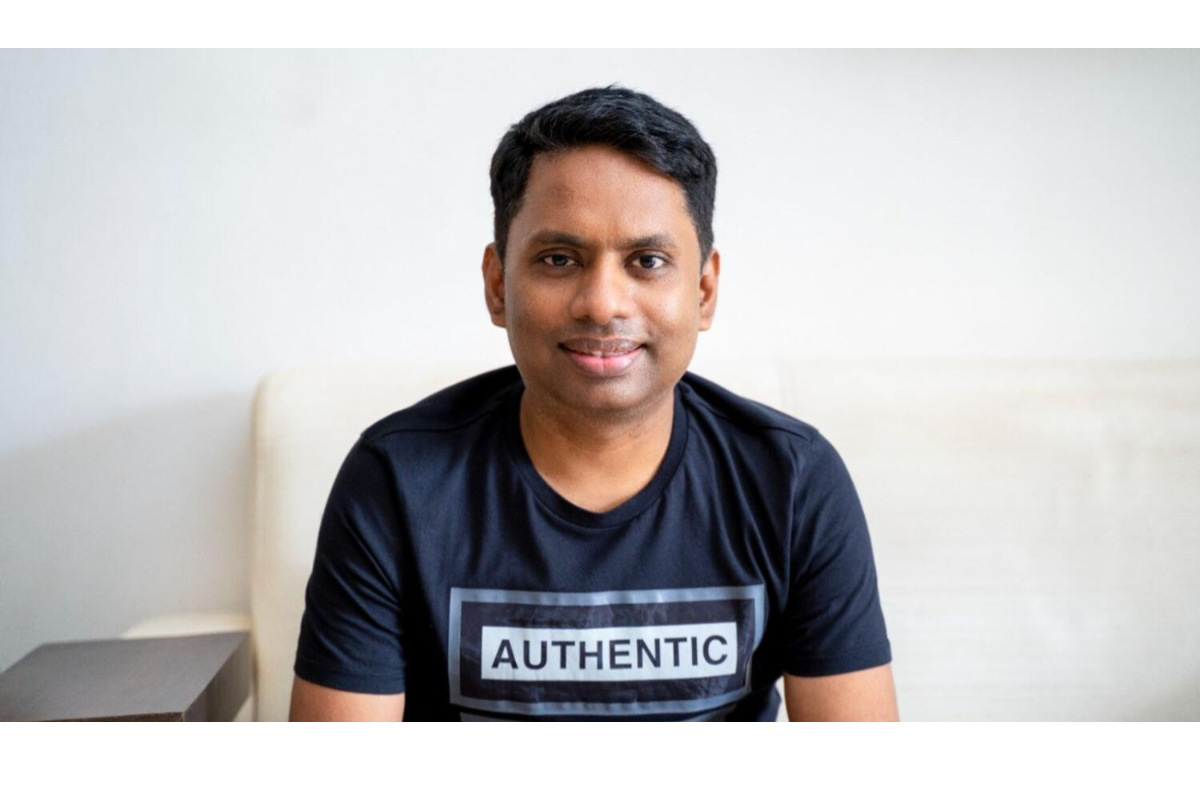
The BrightCHAMPS is betting big on the UAE
Ravi Bhushan, a computer science graduate from the Indian Institute of Technology (IIT), Varanasi, started the learning platform BrightCHAMPS in 2020, amid the raging Covid-19 pandemic.
His mission was clear: To transform millennial pupils into technology leaders who can come up with innovative and sustainable solutions for modern-age problems.
BrightCHAMPS draws its inspirations from the founder’s own childhood, when he realised that he wanted to learn more than what was being taught in the classroom and within the set curriculum.
Frustrated by the pace and limitations of his classroom, he requested his grandfather to allow him to be homeschooled. His grandfather agreed, provided he maintained high grades in school, which he achieved with flying colours.
His innate belief that those who will build technology will shape the future in meaningful ways has stood him in good stead in his stellar professional career.
He is passionate about ushering in a sea-change in the crowded Edtech market.
“When I entered IIT-BHU, I was one of the few students there who had never been meaningfully exposed to or used computers or technology. However, by the time I finished my computer science degree, I had won every major coding competition across the country,” said Bhushan, who has successfully led two companies from early stage to series D funding. He was the chief technology officer (CTO) of Proptiger, business head of Makaan.com and chief product and technology officer at Housing.com.
“The more time I’ve spent in technology, the more I realise that traditional education systems around the world are not keeping pace with the rapid advancements across important emerging technologies like robotics, artificial intelligence (AI)/machine learning (ML), cryptocurrencies, blockchain, Web 3.0, and so many others. So, this is the gap we’re trying to fill with BrightCHAMPS,” he said.
“We aspire to become the one-stop-destination to equip children with Next-Gen life skills. Our carefully curated curriculum includes courses in coding, Vedic (ancient Indian religious texts) mathematics, basics of money, emotional wellness, robotics, AI and newer technologies and skills,” he said.
Bhushan gave an insight into BrightCHAMPS’ offerings.
“All our gamification features across the product such as our international cultural exchange programme Global House, our global hackathon Code/Decode, and our in-application (app) play currency BrightBEANS are geared towards testing learning outcomes,” he said.
In retrospect, the pandemic has been an opportunity for BrightCHAMPS.
“The pandemic has acted as a catalyst for the adoption of technology. The integration of technology with education is an idea whose time has come since it is the only viable way to solve the problem of access and opportunity in a cost-effective and sustainable manner. The pandemic fast-tracked the adoption of technology among those who might have otherwise been on the fence or hesitant to see it as a tool through which their children can achieve superior learning outcomes. But now that they have experienced the convenience, impact, savings in terms of time and money, and superiority of services, and safety of educational technology, I’m confident that the sector will grow by leaps and bounds in the coming years. Our steady growth illustrates that quality of services triumph over offline modes of education,” Bhushan added.
The Edtech sector has been beset with challenges such as mis-selling.
Bhushan maintained that their “sales model is built on truth, which is why we’ve had negligible dropouts from our programmes from the outset.
BrightCHAMPS is betting big on the UAE because it is one of the world’s most connected countries, where the Internet penetration was at 99.15 per cent in 2019.
“With high per capita income around Dh140,000 in the UAE, greater propensity to spend, population concentration in urban centres, widespread adoption of social media, the young nation is a preferred choice.
“Our approach in UAE has been much like the one we adopted in Indonesia, where we addressed the language barrier by ensuring all our curriculum was translated in Bahasa. We’re in the process of translating all of our content in Arabic as well. We also ensure that our teachers are bilingual (English + local language) so that pupils who are not proficient are not at a disadvantage,” he added.
Courtesy: Khaleej Times
Catch all the Economic Pulse News, Breaking News Event and Latest News Updates on The BOL News
Download The BOL News App to get the Daily News Update & Live News.








 Read the complete story text.
Read the complete story text. Listen to audio of the story.
Listen to audio of the story.